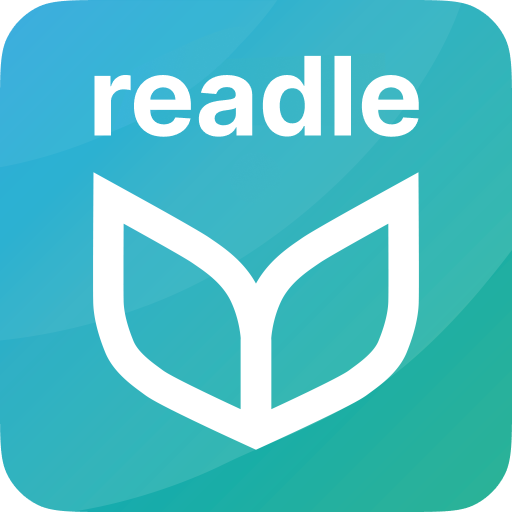
Learning a language can often be a challenging process, especially if you have no idea where to start. And learning German can be pretty daunting for complete beginners, as there are many pronunciation and grammar rules that are completely different from those in English.
However, that doesn’t mean that you can’t learn German – even if you decide to do that by yourself. Trust us: self-learning can hep you speak German fluently just like any language classes would.
Today, there are many materials online (as well as various platforms and apps) that can help you make that language learning journey easier and more pleasant. But first, you need to find out which things to focus on when starting to learn German.
German grammar, speaking, listening, reading, basic words and phrases, alphabet, sentence construction – there is just too much information out there. Don’t worry, though – we’re here to help you.
Read on to find more about German for beginners, create your own learning plan, and make sure that you’re ready to embark on the marvelous adventure of learning the German language.
Ready, Set, Go!
First of all: Herzlichen Glückwunsch! Congratulations on your decision. If you’re an English speaker and wish to “Auf Deutsch sprechen,” you’re a winner already because you’ve decided to roll up the sleeves and learn German.

There are a few things to keep in mind that can be very helpful on your journey of mastering the German language by yourself. And today, we’re going to tell you more about them.
Fun fact to start with…
Did you know that German and English actually come from the same language group? It was the Germanic language group – and, basically, English has its roots in German.
Of course, it’s been well over one thousand years since the English twig grew on the language branch in the German family tree – so, to be fair, the roots aren’t of enormous practical benefit here – but, anyhow, this relation can be helpful.
On paper, German often appears to be a pretty overwhelming cryptic language. There are words that can be joined together with other words to create a compound word, and some words even have a triple fff – huh what?!
The German grammar isn’t a piece of cake either – it’s well known to be confusing for those attempting to comprehend it in fragments. However, don’t worry. If you already know English, the German language shouldn’t be as challenging as it seems.
And to help you get the basic German rules, we’ll start nice and slow from the very beginning.

Let’s Start: German for Beginners
Lesson 1: The German Alphabet (“Das Alphabet”)
Learn the German alphabet first – it will help you a great deal in comprehending the words pronouncing them the right way. But if you don’t want to simply memorize it, that’s okay – there are many fun ways to do that.
For example, you can try the Readle – learn German app instead of using the traditional techniques. You can also write down the 27 letters of the German alphabet on paper with explanations and repeat them every day.
And, of course, there is always Youtube, where you can find numerous helpful videos – just type in “The German Alphabet.”
Then – Vocabulary
Once you’ve got the alphabet down – B R A V O. Now, you might be wanting to check some resources that teach you the basics of German grammar and vocabulary. You can find many materials online – just read the reviews first to make sure that you’re using something efficient.
Additionally, there are tons of free online German courses for beginners. The Goethe Institute is known to be one of the best platforms for that, and they’ve made quite a few of their resources available for free on their website in their Deutsch für dich (German for you) section. There, you can find content for all the language learning levels – from A1 to C2.
There’s also the option to talk to other learners or even German native speakers more. You will find several forums online where you can find people seeking a Sprachpartner (language partner).
Lesson 2: Listening Skills
The Eurovision Song Contest is great proof that German music is made for learning.
For example, whilst Rammstein is quite progressive and aggressive, it’s also (arguably) Germany’s biggest music export that can teach you a lot – and maybe even help you speak German better.
If that’s not your style, that’s okay – there is plenty of other good music coming out of Germany.
Annette Luisanne and Annemariekantereit, for instance, offer a beautiful portfolio of German songs that sound quite poetic and, at the same time, can be a great source for learning German. Awake the Shakespeare in you and dream yourself through their song collection on any of the music platforms.
If you’re more into the rap style, check out Captain Peng. He’s smart, funny, and has a very intelligent portfolio of words (w)rapped up – it can significantly broaden your vocabulary.
Where to Listen to German Music?
Having music in the German language playing throughout the day whilst you’re doing your housework, cooking lunch, or your daily workout is an excellent way to get some pronunciation practice in and to improve your listening and vocabulary skills.
Spotify and Itunes Music have all the great German artists. However, if you want to start with something simple and more useful, the Goethe Institute has created a Spotify playlist with 29 German songs on it.
The selection has a few bands that sing a bit slower – which makes the comprehension quite easy. It’s a good idea to get started finding some bands you like and that sing in German and then explore their wide selection.
If you wanna make an extra effort, search online for the lyrics of a song and try to read them while singing along. If you’ve learned the alphabet, this should be fairly easy for you to do, and it will be a nice push for your German-speaking skills, too.
Lesson 3: Expanding German Vocabulary
Learning German grammar rules as well as vocabulary can be a little daunting if you focus only on lessons or memorizing something. Instead, try to make the language learning process a little more interesting and incorporate fun activities into it.
For example, read German books, watch movies, or talk to German people more.
German Stories to Read
There is an adorable series by Andre Klein about Dino and his travels called “Learn German with Stories.” A full selection of stories is available online at fair prices, so you can try them out whenever you like.
The reason these books can be an amazing source of fun lessons for a beginner is that they contain comprehensive glossaries at the end of the texts and pose questions to check your comprehension. They are also pretty interesting!
Visualize More
We at Readle are also big fans of picture dictionaries for absolute beginners. Reading them is a bit like reading a cartoon.
And how about spending some time with your nephew or little sibling and watching a Disney movie with German subtitles?
German natives had learned their language through exposure to pictures when they were kids; it’s a great way to learn your second or third, or fourth language, too. And you can find various visual tools online.
Surround Yourself With the German Language
Ultimately, the best way to learn German is by surrounding yourself with everything German, including several German friends. If you live in Germany (or any other country where German is spoken on a daily basis), go out to your favorite café or bar and get to know new people.
And if you don’t live in Germany, get creative and try to find a way to practice with native speakers (or even other learners).
If you’ve got a smartphone, jump on a language exchange platform or join a German Facebook group. There are plenty of German users that are willing to talk in German with English speakers.
Or, you can also find affordable teachers who are more than happy to work as a conversation partner or who can provide you with more information about basic German grammar or vocabulary.
Alternatively, you can look for some German lessons online – however, make sure to find something that suits your level and seems fun to participate in.

It’s Just The Beginning – There’s More to Learning German
Now you have got started, but it’s highly important that you stay engaged. Continue practicing every day, even if it’s only for 15 minutes – and you’ll see great results.
Create a plan and make sure that you cover grammar, basic phrases and words, audio lessons, reading, speaking, and all the other important parts of learning a language.
You can also hire a private tutor who’ll allow you to speak in German more or sign up for courses or lessons online so that someone helps you learn.
You’ll see that all of those make a big difference next time you run into a native speaker. As you practice more, your communication skills will improve, and you’ll be able to answer some basic questions shortly.
And, of course, we can’t help recommending you the Readle – learn German app.
It’s one of the best tools out there if you want to become more fluent and be able to use the German language more naturally. In Readle, you can read a story, listen to it read out loud by a native German speaker, learn useful grammar, and see the translation of every word.
It might be one of the best ways to learn German fast without going through too many challenges.
Learn German and Hab Spaß! (Have fun!)
And here you have it – everything you need to learn about German for beginners. Now you should know where to start, what to focus on, and how to make your language learning journey pleasant.
Overall, German is a fascinating language with a long history and, yes – some longer words. However, learning new languages always pays off!
Learning German will not only open up doors for you throughout Western Europe – but also offer you a fascinating opportunity to discover the culture that can otherwise be difficult to discern.
Viel Glück – and we hope that you have lots of fun when learning German.
